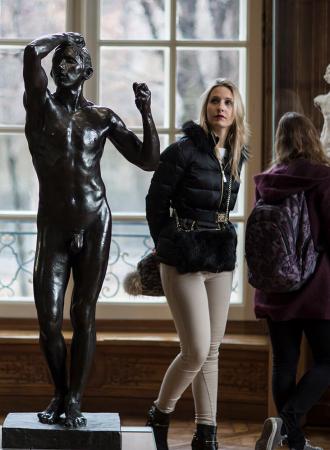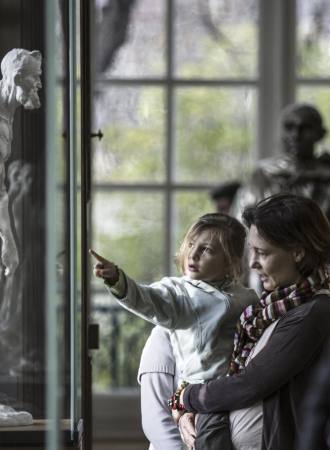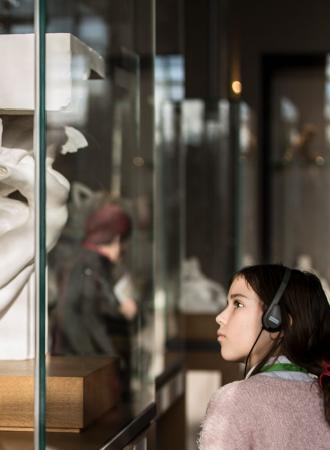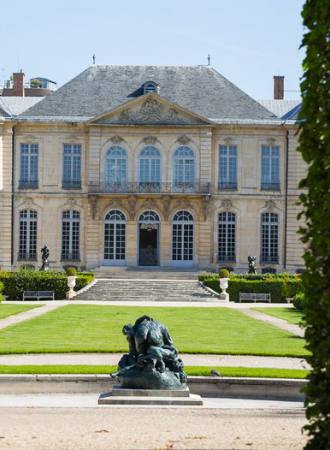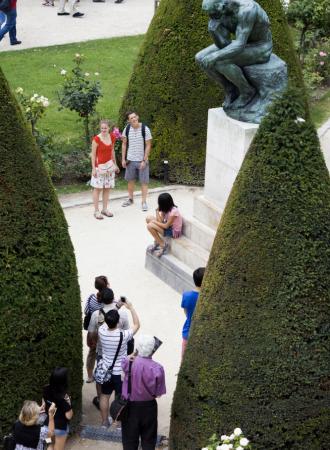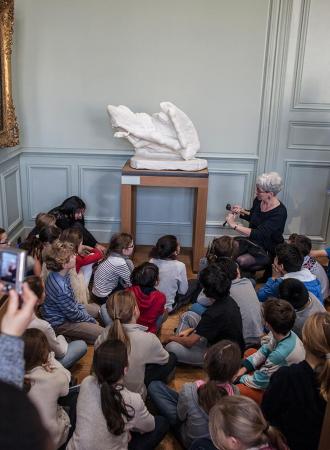Search the site
Marble carving
There are two ways to go from the plaster model to the marble: the machine pointing, for translations on the same scale, and the method of the three compasses, which allows the enlargement or the reduction, by subjecting the spacing of the compass branches to a multiplier or divisor coefficient. In both cases, it is a matter of transferring the marks marked with a pencil on the model onto the marble and determining the depth to be dug. After this work of setting the points, the size is carried out by a practitioner who translates the work by respecting the indications of the artist. The pointing machine, in the shape of an inverted "T", has perpendicular rods at its ends which are used to fix it to the base points located equally on the model and on the marble: for a bust, for example, on the top of the skull and on each shoulder. The vertical axis of the T has an articulated arm, ending in a long needle, which slides along the rod. Once pointed on a marker, the needle is blocked in its position with a stopper, and the tool is placed back on the marble.
The depth to be dug is known by measuring the distance the needle had to move back to be flush with the surface of the marble. For the three compasses method, many nails are positioned at the same locations on the plaster model and on the marble. Each point to be marked with a pencil is geometrically defined by its position in a triangle whose vertices are nails. Each compass measures the distance between a nail and the point. Each measurement is transferred to the marble by an arc of a circle. The point to be reached in the depth of the marble is at the precise point where, by digging, the three arcs of a circle meet. Several tools are used successively: the points, which remove large chips or dig grooves; the gradines, which leave striations on the surface of the marble; the chisels, which give a smooth and tense aspect. The finishing, by polishing, sometimes leaves visible the small hollows pierced during the setting to points.
